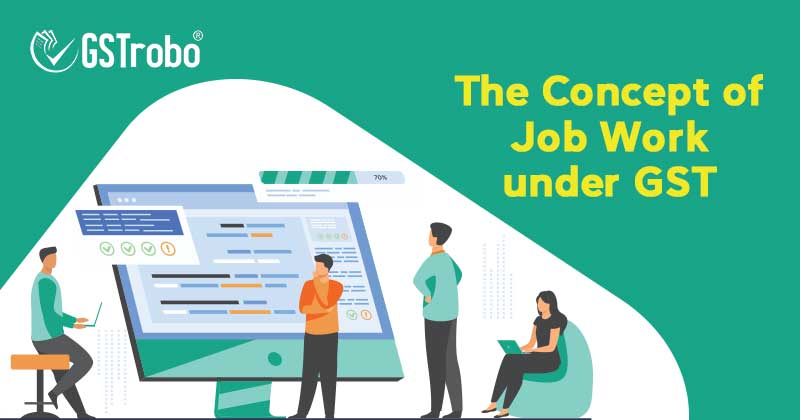The Concept of Job Work under GST
In the Indian economy, the job work sector is an important industry. It includes outsourced operations that may or may not lead to manufacturing are included. The meaning of the word “job-work” is self-evident, it is the processing of the principal’s goods. In Central Excise, the job work concept already exists, with the primary producer sending inputs or semi-finished items to a job worker for further processing. Many facilities and procedural concessions have been granted to both the job worker and the principal. The aim is to make the principal accountable for adhering to compliances on behalf of the job worker.

The GST Act has introduced a special provision related to job work. As per this provision, the job worker needs to give back the inputs or capital goods after processing the semi-finished material without having to pay GST. Both the principal and the job worker will get benefits from this provision.
What is Job Work?
Job work is defined as “any treatment or procedure done by a person on goods belonging to another registered person” under Section 2(68) of the CGST Act, 2017. The person who does the task is referred to as a “job worker.” The products do not pass to the job worker; instead, the principal retains ownership. The job worker is responsible for carrying out the principal’s procedure on the products.
Procedural Aspects of Job Work
Regarding job work, various facilities with specific criteria are available, some of which are as follows:
- A registered person (Principal) can transmit inputs/capital goods to a job worker and from there to another job worker without paying tax and then bring the items back without paying tax when the task is completed. The principal is not obligated to reverse the ITC received on inputs or capital goods sent to the job worker.
- The principal can deliver inputs or capital goods straight to the job worker without having to bring them to his premises, and he can still claim the tax credit for such inputs or capital goods.
- Inputs and/or capital goods delivered to a job worker must be returned to the principal.
- After the goods have been processed, the job worker may clear the goods to
(i) Another job worker for further processing;
(ii) Dispatch the goods to any of the principal’s places of business without paying tax;
(iii) Remove the goods on payment of tax within India or without payment of tax for export outside India if certain conditions are met.
For transferring inputs or capital goods supplied directly to the job worker, a challan must be given by the principal. Moreover, the principal will be responsible for keeping accurate accounts for the inputs or capital goods.
ITC on Goods Supplied to Job Worker
According to Section 19 of the CGST Act, 2017, a person who supplies taxable goods to the job worker is allowed to receive credit for input tax paid on the inputs. Furthermore, the proviso states that the principal is entitled to ITC even if the items were directly delivered to the job worker without being brought into the principal’s premises. The principal does not have to wait for the inputs to arrive at his location.
Time Limits for Return of Processed Goods
According to section 19 of the CGST Act, 2017, inputs and capital items must be returned to the principal within one year or three years of being sent out, accordingly. Furthermore, the provision relates to the return of goods does not apply to molds and dies, jigs and fittings, or tools provided by the principal to the job worker.
Provision Related to Clearance of Waste
According to section 143 (5) of the CGST Act, 2017, waste created at the job worker’s premises can be either
- Delivered directly by the registered job worker from his business place after the payment of tax, or
- In case if the job worker is not registered it can be cleared by the principal.
